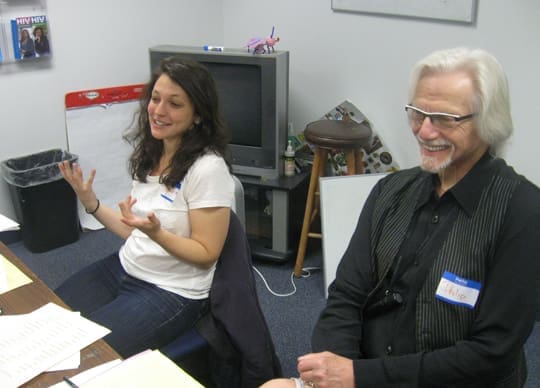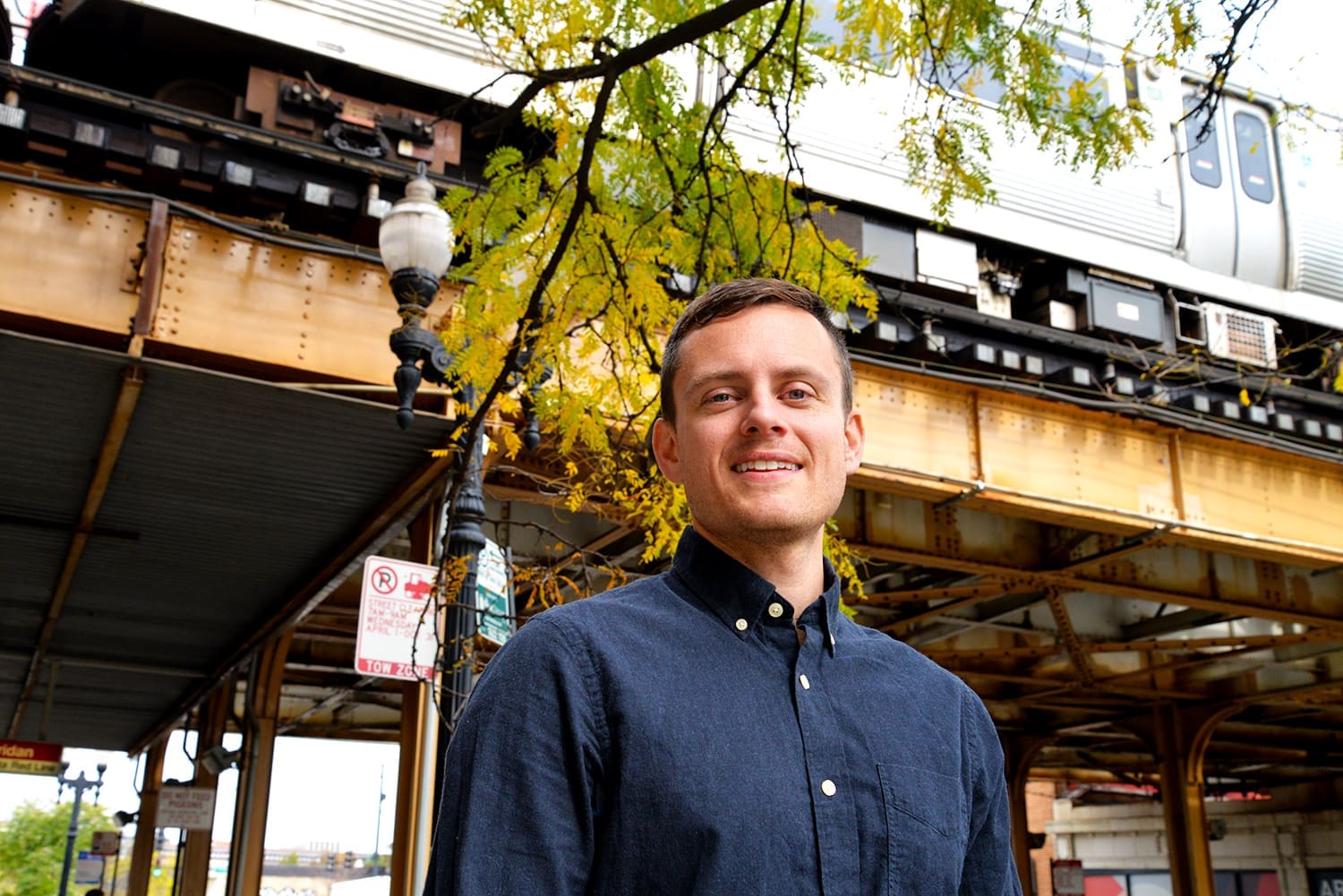
Vincent Moorman, at left, and Bobby Lynn Benson participate in a recent Tenant Empowerment Seminar. AFC Photos-Anne Sanicki
At tenant seminars, clients learn independent living skills and gain a sense of community.
By Anne Sanicki
On a sunny May afternoon on Chicago’s West Side, a group of men and women gathered around a conference table and engaged in a lively discussion of daily needs versus wants.
They debated the merits of cable television compared to a Netflix account, whether volunteering one’s time at a church was as valuable as a monetary tithe, and what kinds of food they needed to stay happy and healthy. Much of what they considered luxuries might be cast as necessities in other circles.
So went the step-by-step construction of a daily and monthly budget, a conversation facilitated by the AIDS Foundation of Chicago (AFC) for clients who receive housing assistance rental subsidies. Budgeting has certain challenges for this group. Though many are seeking work, their incomes are currently fixed. Most are living off the monthly social security or disability benefits. But for these clients, budgeting and prioritizing every penny spent is essential to remaining stably housed.
Budgeting is just one of the skills learned at the Tenant Empowerment Seminars.
“These trainings are particularly powerful because we can provide our clients with great information and it’s also a space where participants can share their own invaluable experiences and expertise,” said Marlene Edelstein, 22, who facilitates the seminars.
Edelstein, AFC’s homeless outreach assistant who works with AFC through the AVODAH: The Jewish Service Corp., has trained 36 clients since February. Twenty more people have signed up for the next two trainings.

Marlene Edelstein, at left, co-facilitates a seminar with Philip Englert.
The two-day Tenant Empowerment Seminars inform clients of their rights as tenants and imparts independent living skills such as safety, budgeting, conflict resolution and relationship building to assist with landlord and neighbor relationships. It’s structured to empower and inform the client about how to be a good tenant, while encouraging independent living skills.
The experiences shared by the participants inform and influence the subsequent trainings, Edelstein said.
The idea for the seminars was spawned from the 2008-2012 Five Year AIDS Housing Plan, a comprehensive plan formed by major HIV/AIDS services providers in Chicago, recognizing the need for guidance for those who are newly housed or living in their own unit for the first time. Gabriella Zapata-Alma, who works at Chicago House & Social Service Agency, developed the training.
Within the curriculum, it’s acknowledged that the clients are truly the experts, living day to day in these units and with these budgets. Their input and active participation is vital to the continued success of the seminar. For many of the clients, having the opportunity to share their own personal experiences about housing and money matters is a unique experience. And the seminars foster an environment where clients feel comfortable listening to and learning from the successes of others.
Clients who have participated in these seminars say they value the sense of community and friendship they feel by being a part of the group as much as the practical skills learned.
Philip Englert is one of these clients. He participated in the first seminar in February and has since co-facilitated two trainings. Edelstein considers him to be an invaluable resource to his fellow clients.
When asked about the training, Englert, along with the rest of the clients at this training, emphasized the importance of finding a sense of camaraderie with the other people at the training.
“The most important thing is showing we are not alone in this,” he said. “We have a common experience.”
###
Anne Sanicki is an emergency services associate for the AIDS Foundation of Chicago.



